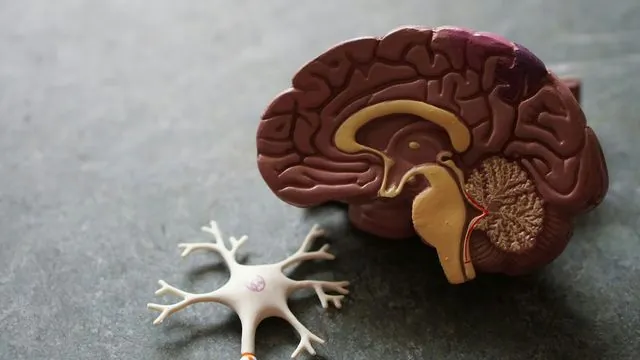
Revolutionary Computational Pipeline Illuminates New Avenues for Alzheimer's Research and Drug Development
2024-12-05
Author: Daniel
In a groundbreaking development, researchers at Columbia University's Mailman School of Public Health have unveiled a cutting-edge computational pipeline aimed at uncovering protein biomarkers linked to complex diseases, particularly Alzheimer's disease (AD). This innovative tool not only analyzes protein biomarkers but also examines 3D structural changes induced in these proteins, shedding light on the intricate mechanisms of Alzheimer's and pinpointing potential therapeutic targets. Published in the prestigious journal Cell Genomics, this research highlights the critical need for effective early detection and intervention strategies for Alzheimer's, a disease notorious for its elusive and untreatable nature. Zhonghua Liu, ScD, Assistant Professor of Biostatistics and senior investigator on the project, emphasized, "Current early diagnostics for Alzheimer's are often invasive, resource-heavy, or insufficiently effective. Our study highlights the urgent demand for blood-based protein biomarkers that could facilitate early detection in a less invasive manner. This would unravel the underlying mechanisms of the disease and lead to more effective treatments."
A Pioneering Analysis of Alzheimer’s Risk Proteins
Utilizing extensive datasets from the UK Biobank, which encompasses over 54,000 participants, alongside a Genome-Wide Association Study (GWAS) with a staggering 455,258 subjects—including nearly 72,000 Alzheimer’s patients—the research team successfully identified seven pivotal proteins: TREM2, PILRB, PILRA, EPHA1, CD33, RET, and CD55. These proteins exhibited distinct structural changes associated with Alzheimer's risk. Encouragingly, Liu noted that some FDA-approved drugs currently targeting these proteins could potentially be repurposed for Alzheimer's treatment. "Our findings not only contribute to the identification of new protein biomarkers but also present opportunities for drug repurposing in our ongoing battle against this disease," Liu added.
The MR-SPI Pipeline: Innovating Disease Understanding
The newly developed computational framework, named MR-SPI (Mendelian Randomization by Selecting genetic instruments and Post-selection Inference), offers critical advantages over traditional methods. Notably, MR-SPI does not necessitate a vast number of candidate genetic instruments, making it a robust tool for studies constrained by limited genetic markers. "MR-SPI is particularly valuable for clarifying causal relationships in complex diseases like Alzheimer’s," Liu explained. "When combined with AlphaFold3—an advanced tool for predicting protein 3D structures—the MR-SPI pipeline enhances our capability to predict structural alterations caused by genetic mutations, providing deeper insights into the molecular drivers of the disease."
Expanding Horizons for Drug Discovery
The implications of this research extend far beyond Alzheimer's disease. The MR-SPI framework has promising applications for identifying protein biomarkers across a variety of complex diseases, potentially revolutionizing drug discovery processes. By enabling predictions of 3D structural changes in proteins, this innovative pipeline could usher in a new era of therapeutic development. "By merging MR-SPI with AlphaFold3, we create a comprehensive pipeline that not only identifies potential drug targets but also elucidates structural changes at the molecular scale," Liu said. "This multifaceted approach harbors exciting implications for the development of more effective therapies, not only for Alzheimer's but for other complex disorders as well."
A New Dawn in Alzheimer’s Research
With Alzheimer’s affecting millions worldwide and current treatments falling short, the urgency to develop innovative solutions cannot be overstated. This pioneering research sets the stage for potential breakthroughs in early detection and novel treatment strategies, stirring hope for patients and families grappling with this devastating condition. Could we soon witness a revolutionary shift in the fight against Alzheimer’s disease? The results of this study indeed suggest a promising path forward.
 Brasil (PT)
Brasil (PT)
 Canada (EN)
Canada (EN)
 Chile (ES)
Chile (ES)
 Česko (CS)
Česko (CS)
 대한민국 (KO)
대한민국 (KO)
 España (ES)
España (ES)
 France (FR)
France (FR)
 Hong Kong (EN)
Hong Kong (EN)
 Italia (IT)
Italia (IT)
 日本 (JA)
日本 (JA)
 Magyarország (HU)
Magyarország (HU)
 Norge (NO)
Norge (NO)
 Polska (PL)
Polska (PL)
 Schweiz (DE)
Schweiz (DE)
 Singapore (EN)
Singapore (EN)
 Sverige (SV)
Sverige (SV)
 Suomi (FI)
Suomi (FI)
 Türkiye (TR)
Türkiye (TR)
 الإمارات العربية المتحدة (AR)
الإمارات العربية المتحدة (AR)